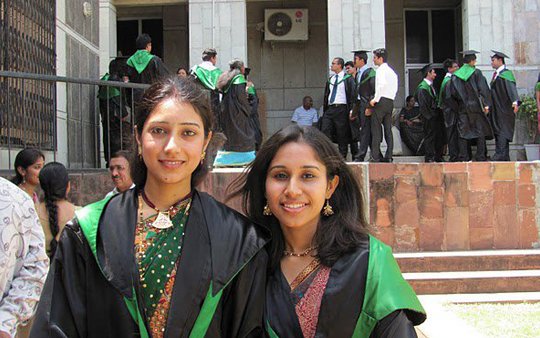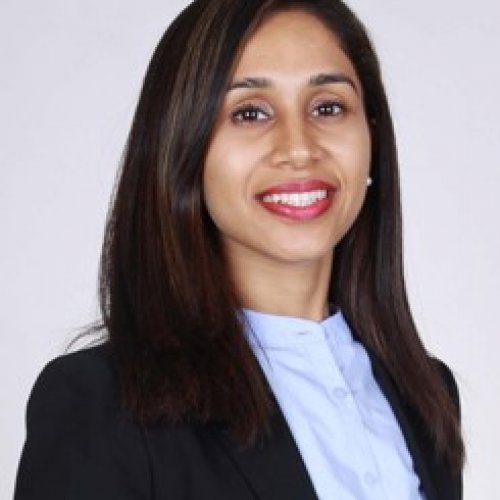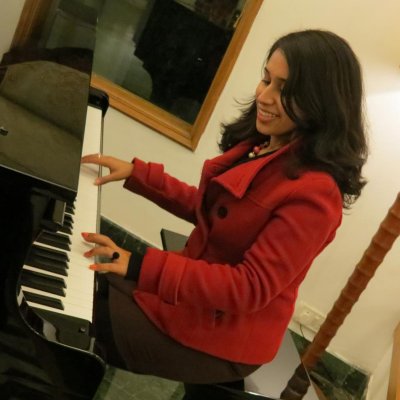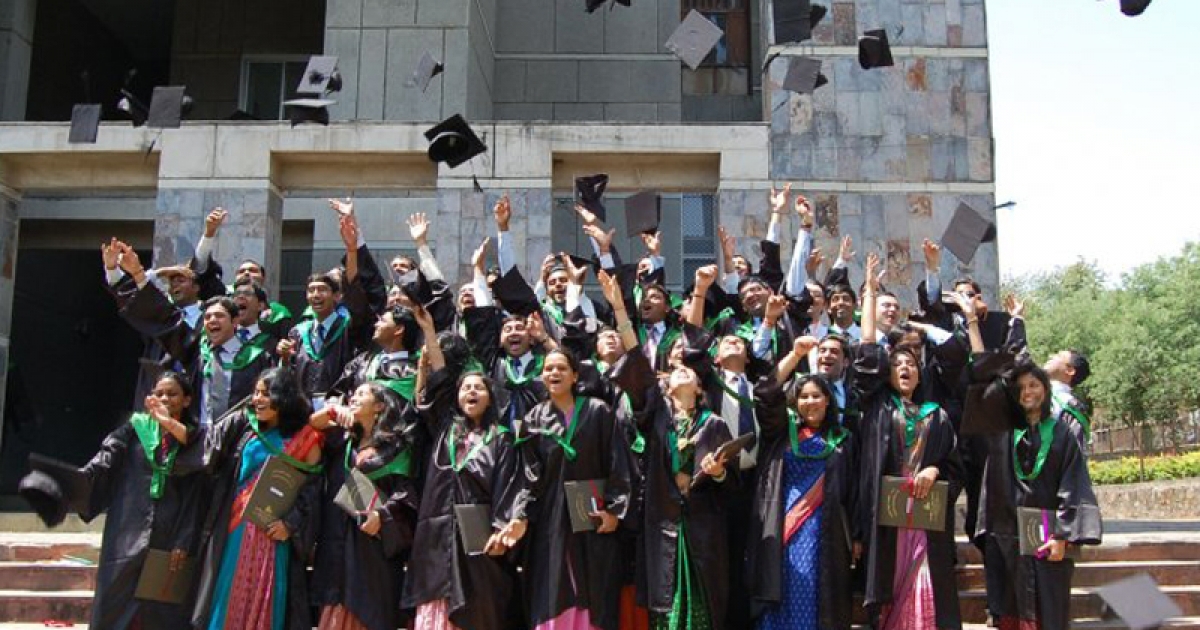“View All Challenges as Opportunities to Learn and Grow”
Swati is from India and has lived in its capital city Delhi for most of her life. Born and raised in a middle-class family with finite resources, she always tried to make most of each opportunity. She is passionate about ideas that incorporate approaches for the integrated development of low-income households, position women and youth in the lead to bring change, and leverage the power of community networks. She strongly believes that the idea of development in the modern world is misplaced, and dreams of a world which could balance on economic, social, and environmental well-being. She is an avid traveller, loves to cycle to work and lead a life that is as minimal as possible. Swati Mehta's mentor is Safiye Ozuygun Sahin.
Q: Tell us a few things about your country, and also your life's story!
A: India is a melting pot of diverse cultures, customs, languages, foods, and landscapes. This is what makes India an exciting destination for tourists offering them a veritable feast. India also has a long and glorious history with many twists and turns which have provided plots for many Bollywood movies! With its ancient charm and contemporary image of one of the fastest growing economies, India also faces many challenges - the biggest
being the vast inequalities and poverty which is not hidden but rather in your face. There is a lot to cherish and a lot to improve at the same time, and that is where the youth of the country needs to take a lead to bring change for the better. I consider myself being part of that group, the youth which aspires to see a strong India!
Born and brought up in the capital city of India, I was fortunate to receive access to opportunities – to study, to live a comfortable life, to travel, and to dream. I became interested in the field of development and social sciences when I started volunteering during my bachelors. However, it was only after I started working post my masters that I came face to face to the realities of millions of people who are not as fortunate as me.
During the last eight years of my professional life, I have spent considerable time trying to understand how low-income households manage their precarious lives with their limited resources and yet sustain an invincible spirit to escape poverty. I have seen different manifestations of lack of access to equal opportunities from the rural villages of India and the Philippines, to urban slums of Nairobi and my own home city Delhi. Everyday decisions, such as where to find money to pay for school fees or how to send money back to the village from the city, are indomitable tasks for the poor. In absence of access to basic financial services, the poor end up losing their savings to fly-by-night agents or borrowing money at usurious interest rates. This makes it difficult for them to escape the vicious cycle of poverty, or sustain once they have escaped. I have been working with financial institutions to help them understand the financial needs of the low-income segments, and advise them on how to develop market-led, affordable and accessible financial products.
Q: What is your view of the world as it is today? And how do you define the concept of a better world?
A: I am torn between saying good and not so good things. We are faced with many crises – human as well as environmental. Reading through the world news, one would think that there is no solution to the wicked problems we face today. There are wars and destruction, malicious politics and corruption, xenophobia and radicalisation, droughts and floods, climate change and extinction. However, at the same time, there are positive initiatives all across the world. Some of the recent examples include - impressive progress made in planet-friendly technology (e.g. first solar-powered airplane); increase in tiger population after 100 years after sustained efforts; heart-warming welcome for refugees arriving in Europe; colossal progress made in women rights; and the biggest one being the invention of Google and Google Maps!!! There are much more such achievements which we must acknowledge and highlight to create a chain reaction of positive change.
Q: What are some of the key challenges in your society?
A: There are many challenges as I just outlined in the previous question. However, I believe that these challenges are not insurmountable. The key to dealing with even the most seemingly indomitable challenges is for people to come together as global citizens and do all in their power for the sake of others and the planet.
Q: As a woman what are a few of the hurdles that you had to overcome up until today?
A: This is a difficult question for me to answer and I am extremely pleased about that. I have not faced any hurdles which are unique to women. Thanks to my supportive family, colleagues, and bosses, I believe I have received the same treatment as any other man at home or office.
Q: Why is the role of a mentor important for you?
A: I always feel that I have so many ideas and too little time to execute all of them. These ideas are aimed to result in inclusive societies, inspire change, and innovate to find solutions to the wicked problems faced by the world. Sometimes I do tend to lose focus and challenge to understand the best path to achieve my objectives. This is where I always benefit from a mentor who has more experience and wisdom. I believe it is a selfless relationship where both parties forge a bond to bring about a positive change.
Q: Do you have a lesson that life has taught you and you would like to share?
A: I am a strong believer in Karma. The effects we see in our lives today are a manifestation of causes created in the past. And the causes we create today will have an effect on our future. While we cannot change the past, we can change our present and our future by ensuring that we create positive effects through our Karma or work. Hence it is all about the present and what we are doing now. This is one lesson in life that always helps me to maintain my focus. This focus sometimes waivers when I am faced with challenges. So, the second lesson is to view all challenges as opportunities to learn and grow. This provides me with the strength to persevere and overcome the challenge.

Q: Name a project, a foundation or a person in your country that you think is doing great work in helping improve other people's lives!
A: I have recently read a couple of books by Mr. Abhijt Banerjee, a professor of economics at the MIT. His work focuses on development economics. He has conducted several field experiments to gauge the impact of various policies and programmes to reduce poverty in India. His books are extremely engaging and insightful with an analysis of causal relationships in the experiment. It shows how important it is to base policies on sound empirical evidence and prior understanding of its probable impact. I am of the opinion that this is something which is lacking in the Indian public policy space. While we have many big poverty alleviation programmes, the impact evaluation of the same is not as robust as one would expect. I hope that Mr. Banerjee and researchers of his calibre could be involved more while developing future public policies in India.
Q: Share with us a phrase, a poem or a story that you love or you find interesting!
A: A phrase by one Mr. Ruben Chavez that helps me focus whenever I feel uneasy is as follows – “Don’t worry about finding your passion. Instead, start by acting on the small things that excite you each day. These are the threads that will connect you to your path, passion and purpose in life".
Q: Tell us one thing that you have learned from your mentor.
A: My mentor is an accomplished professional in the field of microfinance. After having a successful career in banking, especially in improving access to finance for women, she is now advising several microfinance institutions and NGOs. My mentor’s journey has provided me inspiration to keep working towards my career goals and at the same time also maintain a balance with my personal life. She is a great listener and has been pro-actively supporting me to understand more about the international microfinance sector and helping me think through my suitable role in this space.




